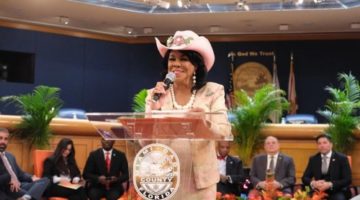WASHINGTON (AP) _ The black scholar and the white police sergeant who arrested him agreed to disagree and promised to talk again, a gracious conclusion to the first round of an eye-opening dialogue on race that allows President Barack Obama to get back to selling his health care plan to skeptical Americans.
After accepting Obama’s invitation to discuss the July 16 incident over a beer Thursday evening at the White House, both Harvard professor Henry Louis Gates Jr. and Cambridge, Mass., police Sgt. James Crowley thanked Obama for the cold ones served on a patio near the Rose Garden. Neither they nor the president offered apologies for their roles in the affair.
Obama became embroiled in the debate over whether Crowley was justified in arresting Gates at his Cambridge home when the president later told a news conference that police had “acted stupidly.” He quickly backtracked in the face of police complaints, acknowledged he should have used different language to express his concerns, and invited the two men to join him for a beer.
“I have always believed that what brings us together is stronger than what pulls us apart,” Obama said after the highly anticipated, 40-minute conversation. “I am confident that has happened here tonight, and I am hopeful that all of us are able to draw this positive lesson from this episode.”
White House officials were content to let Obama’s involvement in the incident end right there. Gates and Crowley said they were eager to get back to work, although both pledged future talks aimed at better understanding.
Gates said he hoped the entire experience would prove to be an “occasion for education, not recrimination,” adding that the burden now rests with him and Crowley to use the opportunity to foster wider awareness of the dangers facing police officers and the fears that some blacks have about racial profiling.
In a nod to all that’s facing Obama, his friend, Gates added, “It turns out that the president just might have a few other things on his plate as well.”
“We agreed to move forward,” Crowley said later when asked whether anything had been solved. “I think what you had today was two gentlemen agreeing to disagree on a particular issue. I don’t think that we spent too much time dwelling on the past. We spent a lot of time discussing the future.”
That’s precisely where the White House wants the public to be looking. Although Obama had invited Crowley and Gates as part of what he called a “teachable moment,” it was barely seen by the masses. The permitted news coverage allowed the public to get the we’ve-come-together photos and video footage that the White House wanted, while keeping the discussion private among the men.
“I noticed this has been called the ‘Beer Summit.’ It’s a clever term, but this is not a summit, guys,” Obama told reporters in the Oval Office before the meeting, trying to lower expectations. “This is three folks having a drink at the end of the day, and hopefully giving people an opportunity to listen to each other. And that’s really all it is. This is not a university seminar.”
The incident that brought them together was well known by the time the three men met, joined by Vice President Joe Biden: Crowley had investigated a potential burglary at Gates’ house and ended up arresting the protesting professor for disorderly conduct. The matter mushroomed into a debate on racial profiling, fueled by Obama’s “acted stupidly” remark.
Vesla Weaver, a political scientist who studies race and criminal justice at the University of Virginia, said she doesn’t fault Obama, the nation’s first black president, for not pushing the conversation to a broader discussion of racial injustice. “He’s in a bit of a difficult spot,” she said, given the nation’s extremely sensitive reactions to matters of race.
Crowley told reporters that Obama served merely as a facilitator.
“He provided the beer. He contributed in a small part,” Crowley said. “He really wanted to bring two people together to try to solve not only a local issue in Cambridge but also what has become a national issue.”
So much of a national issue that Obama’s popularity took a hit, especially among white voters, according to a poll released Thursday.
The survey by the nonpartisan Pew Research Center found that 41 percent of respondents disapproved of Obama’s handling of the Gates arrest, compared with 29 percent who approved. Among whites in general, more disapprove than approve of his comments by a 2-1 margin.
The poll of 1,506 adults was conducted July 22-26. It had a margin of error of plus or minus 3 percentage points.
“Politics aside, the most important thing that should come out of today is that two people sat down and talked to one another,” said Karen Finney, a former Democratic National Committee spokeswoman. “That is how real change happens, when people are willing to challenge their own biases by talking to people who are different from themselves.”
___
Associated Press writers Ben Feller, Cal Woodward, Darlene Superville, Jennifer Loven, Liz Sidoti and Charles Babington in Washington and Karen Testa in Boston contributed to this report.
Pictured above are Sgt. James Crowley, left, President Obama, center, and Henry Louis Gates Jr., right.









No Comment